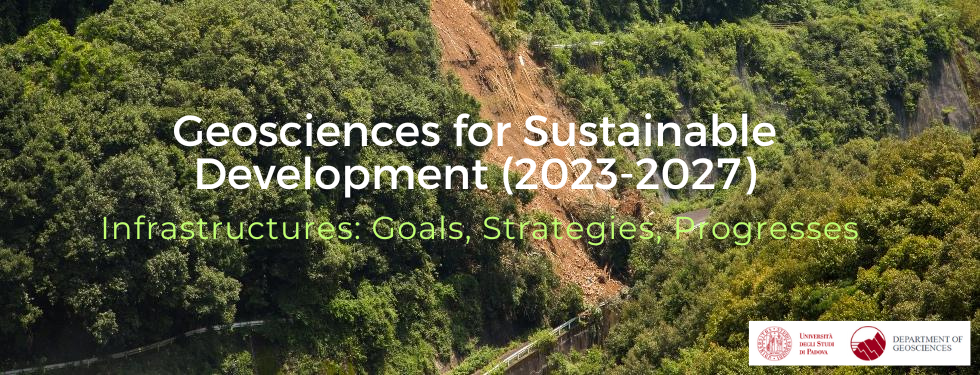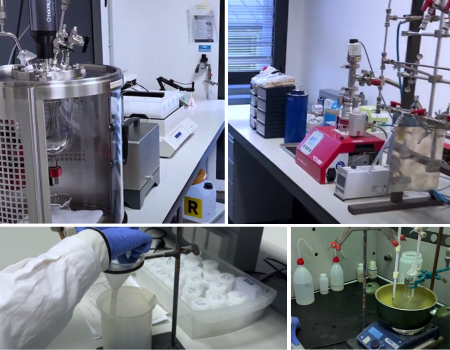Goals, Strategies, Processes - Infrastructures

Goals
A significant effort will be made to integrate Data Science techniques into the study of the project's subject matter, aiming to establish the DG Department as a centre of excellence in conducting cutting-edge research. Additionally, the Department is pursuing the acquisition of new equipment within the field of environmental geochemistry and the investigation of the Earth's Critical Zone.
The project aims to achieve three major infrastructural objectives:
- Establishment of a high-performance computing and artificial intelligence infrastructure for vertical analysis of big data and 2D/3D modeling in Geosciences.
- Development of a geochemistry laboratory for environmental studies.
- Development of field infrastructure focused on studying and monitoring the Earth's Critical Zone.
Strategies
The main investment of the project is represented by the establishment of a supercomputing and big data analytics infrastructure with Artificial Intelligence. This infrastructure is considered essential to cope with the exponential increase in the availability of digital data related to the geosphere, which is also functional to other scientific objectives of the project. A significant advancement in the development of a new geochemistry laboratory will be realized through the acquisition of an ICP-MS spectrometer, and purchasing of field equipment is schedule for investigation of the Earth Critical Zone (ECZ).
Progresses
2023_July. The High Performance Computing Focus Group of UNIPD approved the acquisition of 5 NVIDIA H100 machines, and the Department of Geosciences contributed funding for one of such machines through the Excellence Project.
2023_October. Acquisition of a Gravimeter (SCINTREX CG-5) and Cosmic ray (Styx Neutronica Cosmic-Ray Neutron Detector System S2+) for investigation of the Earth Critical Zone
2023_October. Acquisition of an ICP-MS spectrometer (QQQ ICP-MS Agilent Technologies 7850) for geochemistry laboratory for environmental studies
2024_June: The Department has acquired a new Syscal-Terra Switch 96 Geo-Resistivimeter with 20 Simultaneous Channels, for studies on the Earth Critical Zone
2024_July: The Department has acquired a new DAS (Distributed Acoustic Sensing) seismic sensor.
2024_September: the new environmental geochemistry laboratory of the Department is fully operational
 |





